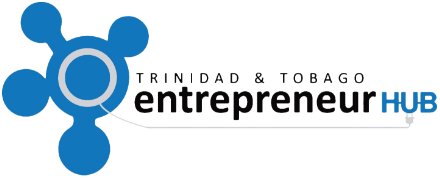Mapping the Social Entrepreneurial Landscape in Trinidad and Tobago – EHub Report Highlights

The Entrepreneurship Hub (EHub) is a non-profit organization in partnership with the US Embassy, YLAI Young Leaders of America Initiative, and US program alumni. Its mission is to foster entrepreneurship and create a collaborative community in Trinidad and Tobago (T&T). EHub aims to break down barriers and provide resources for social entrepreneurs, fostering economic growth and employment opportunities.
The evaluation of this project includes three phases and answers two main questions:
1. What are the legal and financial obstacles to entrepreneurship, particularly in the social sector?
2. Who are the entrepreneurs addressing social issues in T&T?
Data collection involved surveys, both quantitative and qualitative, and personal communication with program implementers in T&T.
Evaluation Question 1: Legal and Financial Barriers –
Respondents identified several barriers, including inadequate funding, lack of price control, unstable resources, and government service issues. The business registration process in T&T was also seen as challenging due to limited funding options for social entrepreneurship and administrative difficulties.
Evaluation Question 2: Social Entrepreneurs in T&T –
Social entrepreneurs in T&T primarily focus on addressing the United Nations’ Sustainable Development Goals (SDGs), with Goal 2 (ending hunger and promoting sustainable agriculture) being the most common. These entrepreneurs come from diverse fields such as sustainable farming, recycling, human rights, education, and more. It is also important to mention that several social entrepreneurs did not initially self-identify as such.


The survey captured the following data on barriers and issues facing Social Entrepreneurs in
Trinidad and Tobago highlighted below.
Key Issues and Challenges:
1. Funding: Inadequate funding was a major hurdle for social entrepreneurs, with limited access to loans, grants, and government contracts.
2. Registration Model: Many respondents were unsure about the appropriate registration model for social enterprises, and the existing models were seen as discouraging.
3. Price Control and Stable Resources: Challenges related to accessing raw materials and machinery, high import costs, and price fluctuations were noted.
4. Government Services: Lack of coordination between government agencies and bureaucratic red tape were impediments.
Solutions Suggested:
Highlighted are some key recommendations from our findings as well as from feedback from the EHub’s members for supporting social entrepreneurs in T&T:
1. Educational Initiatives: Create awareness about social entrepreneurship and who can be a social entrepreneur.
2. Guide for Entrepreneurs: Develop a “How To” manual with information on starting and running a business in T&T.
3. Networking Opportunities: Foster more opportunities for social entrepreneurs to connect and share their experiences.
4. Recognition: Recognize social entrepreneurs as a special class to enable charitable donations.
5. E-Hub Expansion: Expand the reach of E-Hub to reach more entrepreneurs in T&T.
The EHub’s efforts to map the Social Entrepreneurship Landscape in T&T have revealed significant barriers and challenges facing social entrepreneurs in the region. By addressing these issues and implementing the recommendations, E-Hub aims to empower social entrepreneurs, promote economic growth, and create a supportive ecosystem for these impactful ventures.



